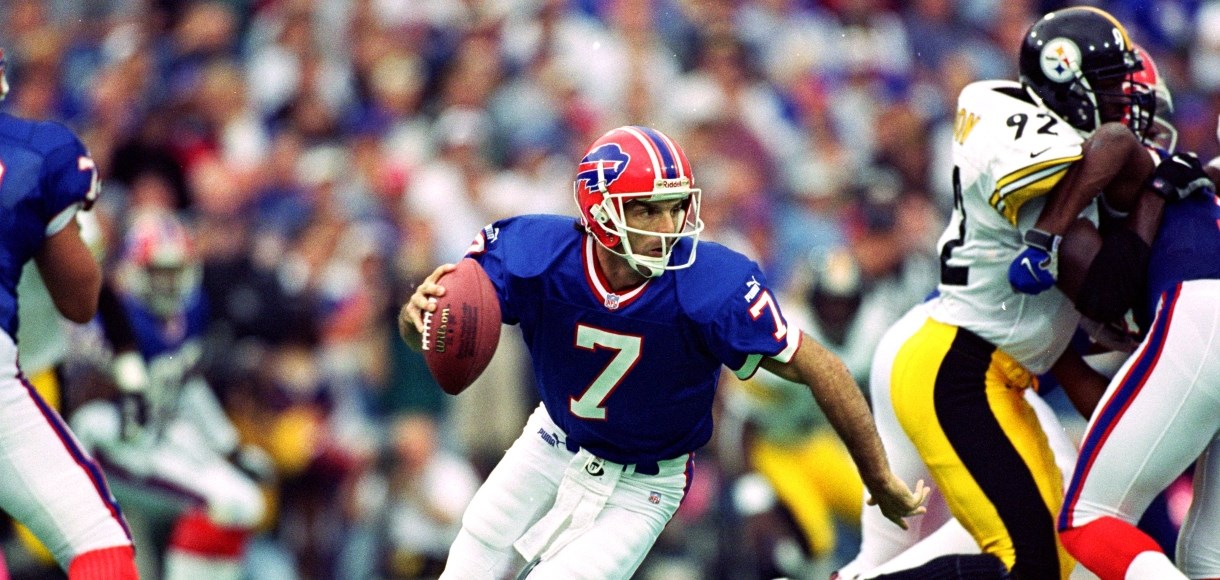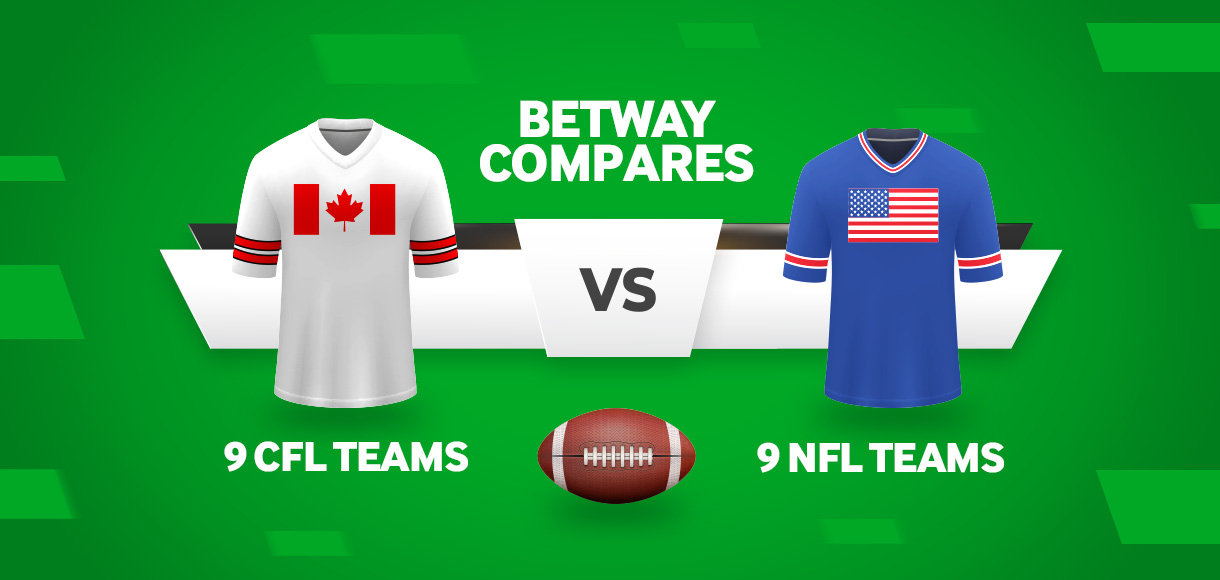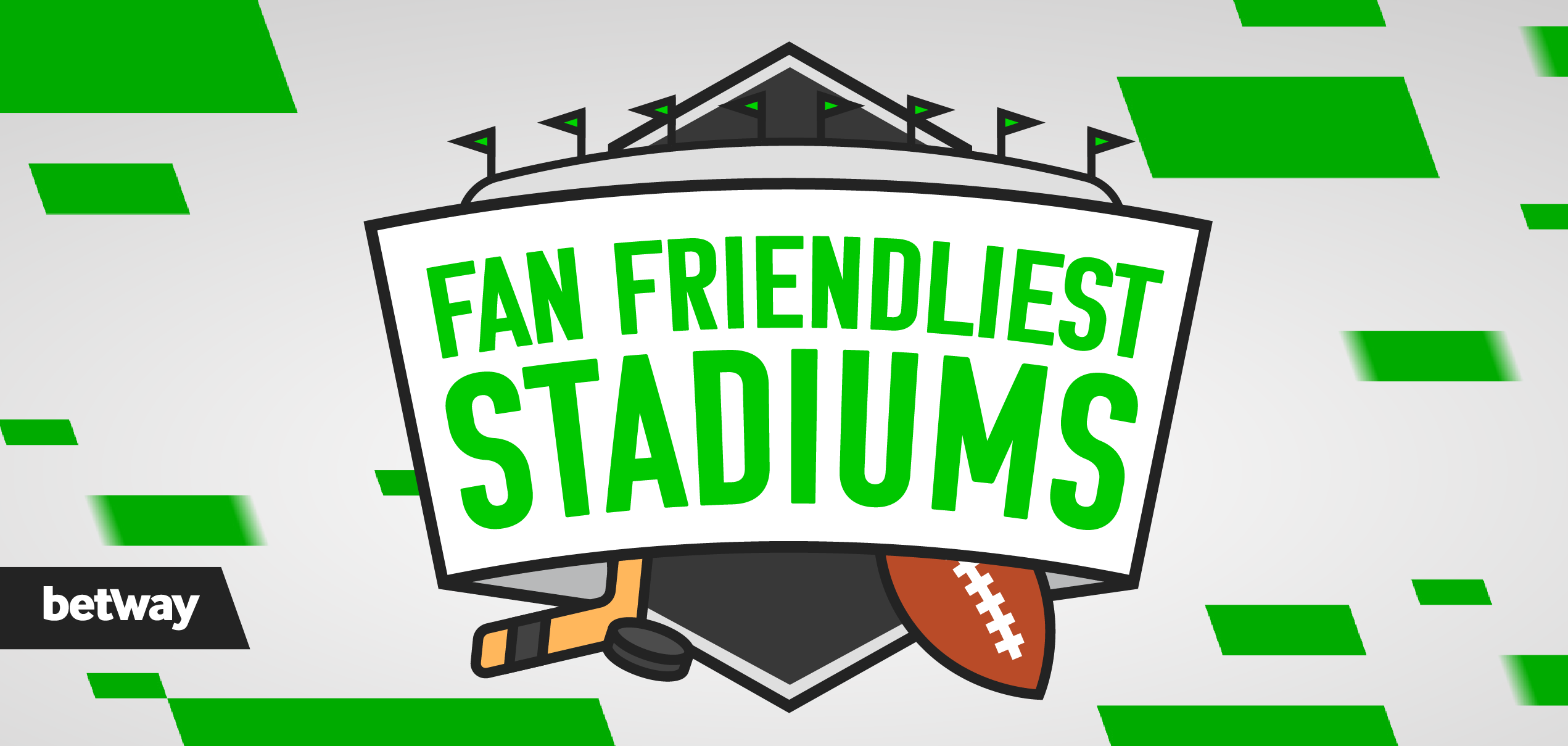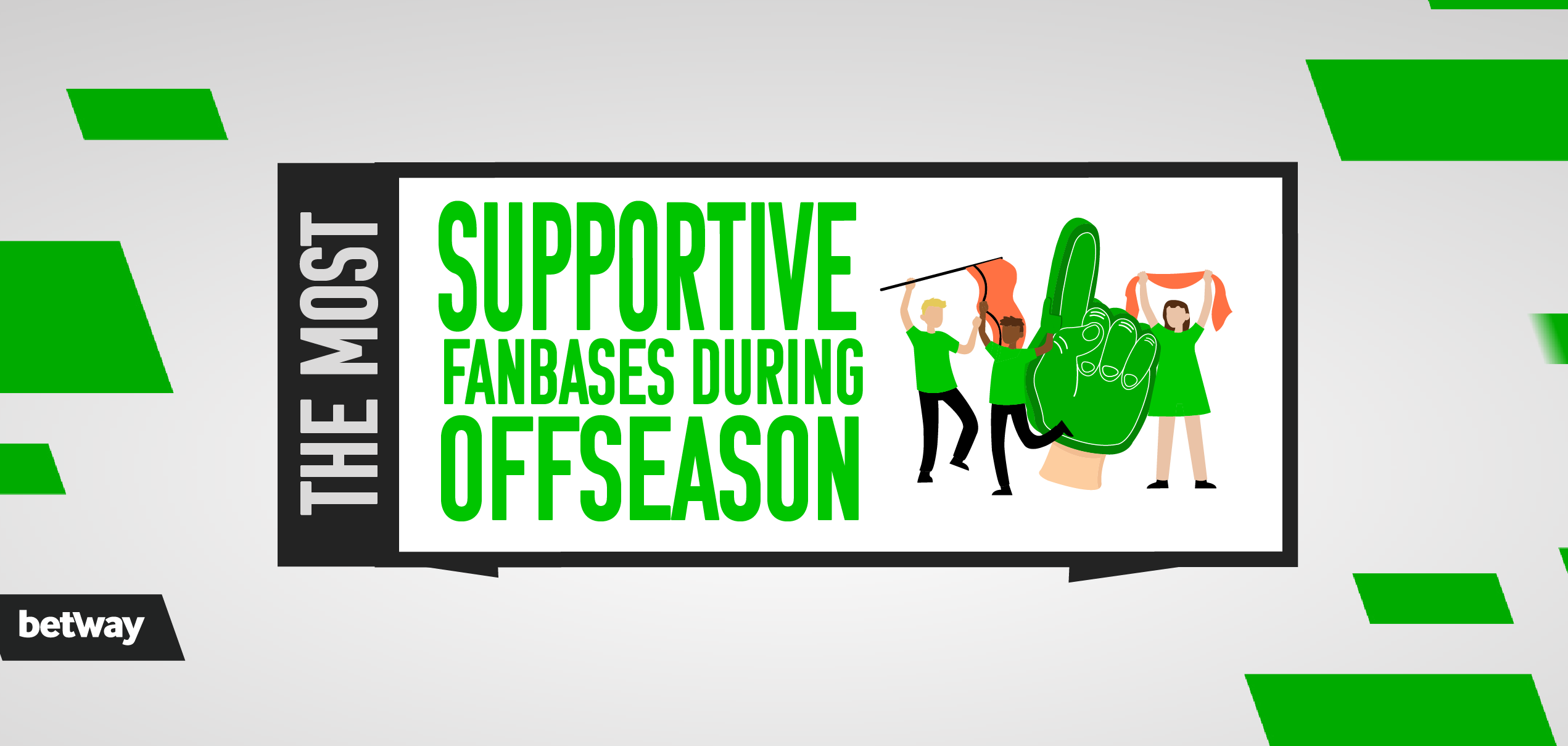Doug Flutie: The doubters kept me driven throughout my career
 Source: Getty Images
Source: Getty Images
The former NFL quarterback reflects on a 21-year professional career that saw him prove people wrong again and again.
Visit Betway for the latest NFL odds throughout the 2021 season.
If it was up to anyone else, Doug Flutie would never had been a quarterback.
The questions started when he was in high school. Is he too short? Can he handle himself? Does he have what it takes?
Despite his obvious talent, the only thing that anyone could focus on was his height, with very few quarterbacks below 6ft ever succeeding in the NFL.
“That was frustrating when I was in high school,” Flutie admits. “I was looking for college opportunities, and I didn't get a lot of Division I offers – I got one, and it was late.
“I had so many people that I admired, that were head coaches in college, and should know what they're talking about, telling me I wasn’t a quarterback. You start to believe it.
“But then you get on the field and you realise it's the same game you’ve always played. So, it ended up being more motivation than anything. I think that's what kept me driven.”
Amid all the doubts, the Massachusetts native went on to carve out a 21-year professional career in the NFL and CFL, winning three Grey Cups, three Grey Cup MVPs, six CFL Most Outstanding Players, NFL Comeback Player of the Year and one Pro Bowl appearance.
His Heisman Trophy at Boston College saw him elected to the College Football Hall of Fame, and his highly successful stint in Canada gave him a place in the Canadian Football Hall of Fame, while he also became the first non-native inductee to Canada’s Sports Hall of Fame.
Flutie’s NFL career began in Chicago, where he played four games before being traded to the New England Patriots.
The doubts that had followed him throughout high school and college were still there.
“I was a backup but I came off the bench early in the season,” he says. “We won a high percentage of games and got back into the playoff picture.
“Then, in the last week of the season, they put the other guy back in and we got beat by a horrible Denver team that was 2-14 that year, and we don't go to the playoffs.
“It was all because I wasn't viewed as a starter. I wasn't viewed as the guy, the franchise guy. And it was all because of the size thing. That really irked me, really bothered me.”
With his talent going unappreciated in the US, Flutie eventually took the decision to head north and play in the CFL.
The motivation for such a move was simple.
“I was 28 years old. I thought I’d play until I was 32 or 33 and be done. I wanted to play, I wanted to be on the field, I want to be the guy pulling the trigger. I didn't want to sit on the bench and watch,” he says.
“I could have signed somewhere and probably been a backup. But even then, I was going to be busting my tail just to make a roster. I wanted to find a way to get on the field and play and enjoy it.”
Flutie settled into life in Canada pretty quickly, racking up 6,619 passing yards in his second season, which remains a professional football record.
That doesn’t mean he found it easy, though.
“The talent level was very surprising,” he says. “A lot of these guys are every bit as talented or athletic as guys in the NFL, but not all fit the mould.
“A linebacker in Canada might be a strong safety in the NFL, that type of thing, but the athleticism and the talent, the competitiveness was all there.
“The biggest thing I learned was to hang on the ball, make sure the receiver is open, give him the ball, let him see it.
“That was the difficulty up there. You had offensive linemen that maybe aren't NFL-calibre, who have to block defensive ends that were the last cut out of an NFL camp, that belong on an NFL roster, but there wasn't a spot.
“So, I learned to throw the ball backpedalling, I learned to throw the ball falling away.”
Flutie spent eight seasons in Canada with three different teams, and is widely considered to be one of, if not the best player in CFL history.
His game developed in many ways during his time there, but there is one thing that he credits Canada for most.
“What I say about the CFL is that I needed to rekindle my confidence,” he explains. “What I did well, for the first time in my life, I blocked coaches out a little bit, and trusted my own judgement a lot.
“A lot of coaches at the NFL level beat me up mentally, confidence wise, at different times. They made me doubt some things, and you can't play that way. You got to play with so much confidence, almost cockiness. And I got that back by playing in Canada. That was huge for me.
“That, to me, was when I showed my athleticism, my quarterbacking skills and my abilities to the top.”
Ultimately, Flutie’s time in Canada put him in a position to succeed when he eventually returned to the NFL with the Buffalo Bills in 1998.
“It really put the fun back in football for me, rekindled my confidence and taught me what I do well, and what I don't do well, so that when I did come back to the NFL, I knew what to focus on,” he says.
“The number one thing was my confidence level. When I came back to the NFL, my confidence was as high as it's ever been.
“I wouldn't change any of it for the world. It just had to happen the way it happened in order for me to be successful and do the things I did. I really believe that, and I wouldn't change those years in Canada for anything.”
Flutie immediately began to prove his worth with the Bills, leading them to the playoffs while being selected for the Pro Bowl and winning Comeback Player of the Year.
To be able to succeed in the NFL, where he had been denied opportunities earlier in his career, was massive.
“It was very satisfying,” he admits. “I think I earned a lot of respect that year. Up until then, in the NFL anyway, I was viewed more as a novelty. A small guy who is fun to watch, who makes some unbelievable plays, does some stupid things.
“Everything that went before was validated. Now it's a clean slate and we can move forward. Now you're accepted. Now you belong.”
Flutie had left little doubt he did belong, but once again, forces beyond his control saw him overlooked at a crucial juncture of the 1999 season.
After winning 10 of his 15 starts to take Buffalo to the playoffs, Flutie was dropped for the wild card game against Tennessee, with coach Wade Phillips revealing that owner Ralph Wilson forced him into the decision.
“I've outplayed this guy for a year and a half, I've been the starter,” remembers Flutie. “But they spent a lot of money on Rob [Johnson] and they hadn't spent a lot of money on me yet.
“They were looking to make him the guy. They wanted him to be the franchise guy. They saw a window of opportunity, and made him the starter going to the playoffs.
“I knew, I just had that feeling and saw the writing on the wall. Like, I've been through this before. I know what's going on.”
Flutie didn’t let the news get him down, though.
“I still thought we were gonna win it all,” he says. “We were a darn good football team. Rob does get banged up a little bit, so thought I would get back on the field at some point.
“I thought it'd be a combination of the two of us to get us through the playoffs. We had a chance to make a really, really good run.”
Unfortunately for the Bills, the Music City Miracle then happened.
After a field goal gave Buffalo a 16-15 lead with 16 seconds remaining, the Titans returned the kickoff for a touchdown via a controversial lateral pass.
“I was sitting on my helmet on the sideline with my hands on my face, and I saw the whole thing line up,” says Flutie.
“And then it all happened. I stood up, and I just was kind of almost laughing at myself, shaking my head, like you got to be kidding me that this actually happened.”
At this point, Flutie was 37 years old, and few would have begrudged him retirement. Instead, he would go on to play another six seasons in the NFL before retiring in 2006 at 43.
For Flutie, there’s no doubt what kept him going.
“Steve Grogan, my former teammate at New England, was doing an interview about me,” Flutie remembers. “They were asking: ‘Why is Doug still playing at 43?’ He said: ‘Because he's still trying to prove himself. He's still trying to shove it in their face and tell them no, I can play this game’.
“And I think he's right, I had that chip on my shoulder. It kept me driven, kept me motivated to work hard on a daily basis.
“You have to have something, no matter how talented you are. Even the guys like LeBron James, the guys that fit the mould, the guys that are just head and shoulders above athletically, they still need something on a daily basis that motivates them, that keeps them driven.
“You would think Tom Brady has nothing left to prove. No, he's still trying to shove it in people's faces that didn’t draft him in the first round.
“You need something like that. Something that keeps you motivated.”




































